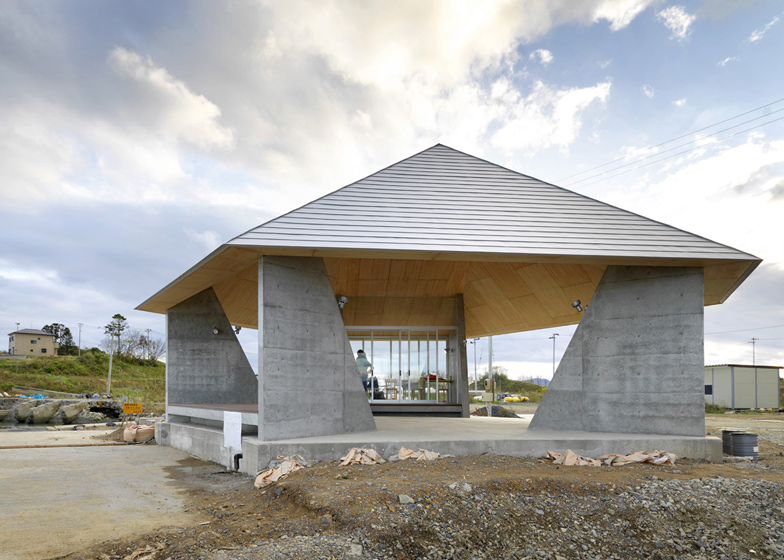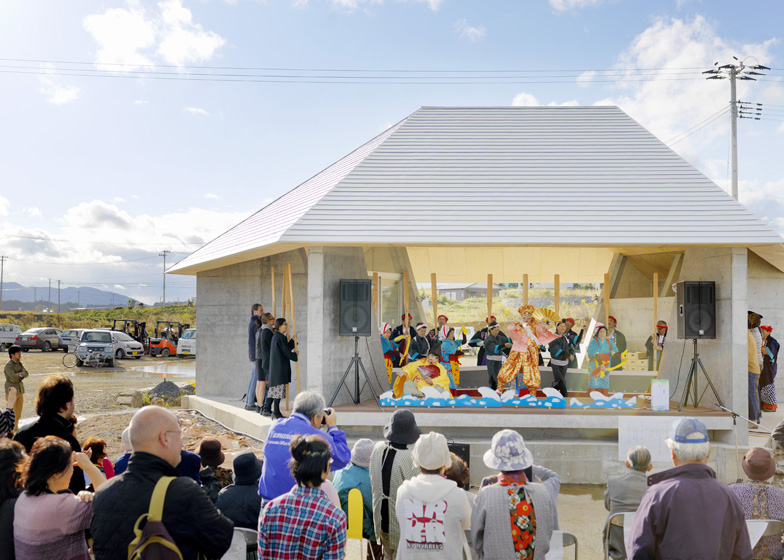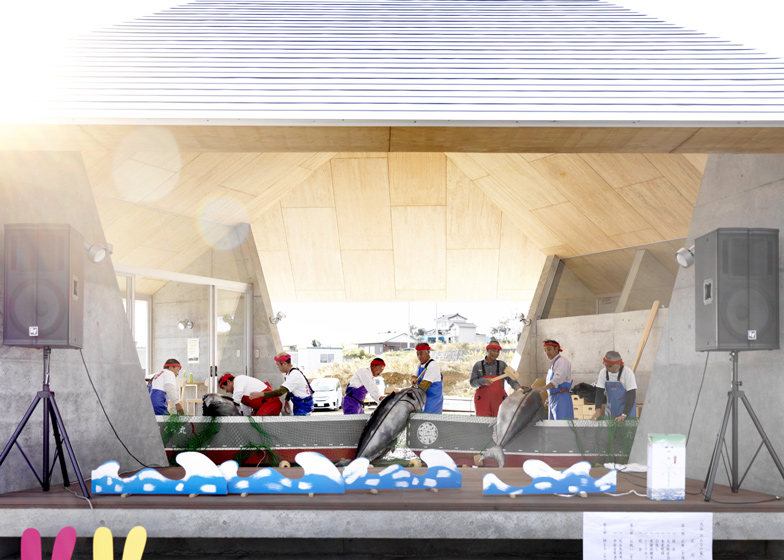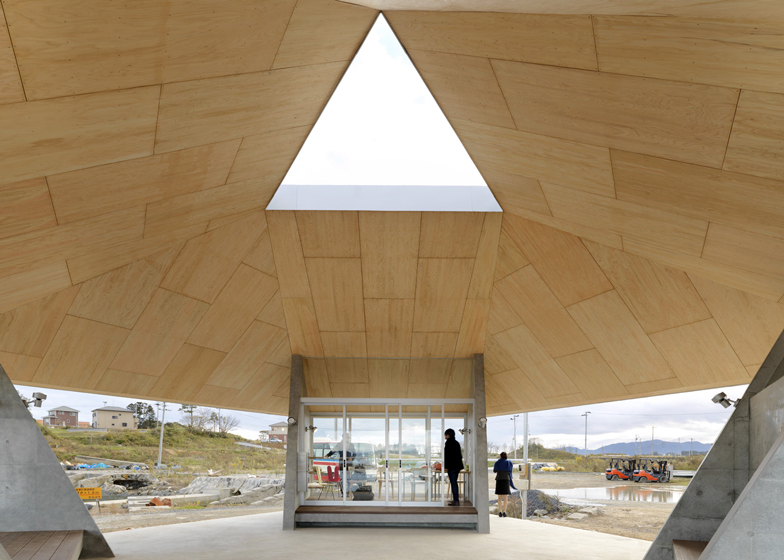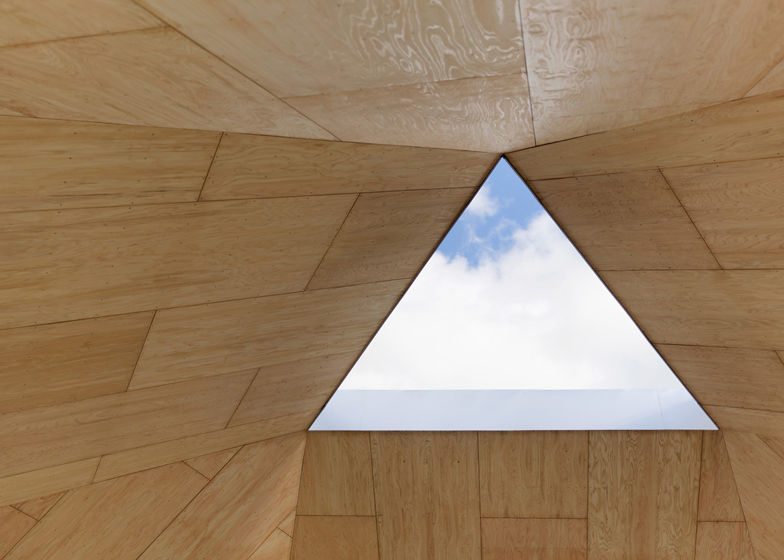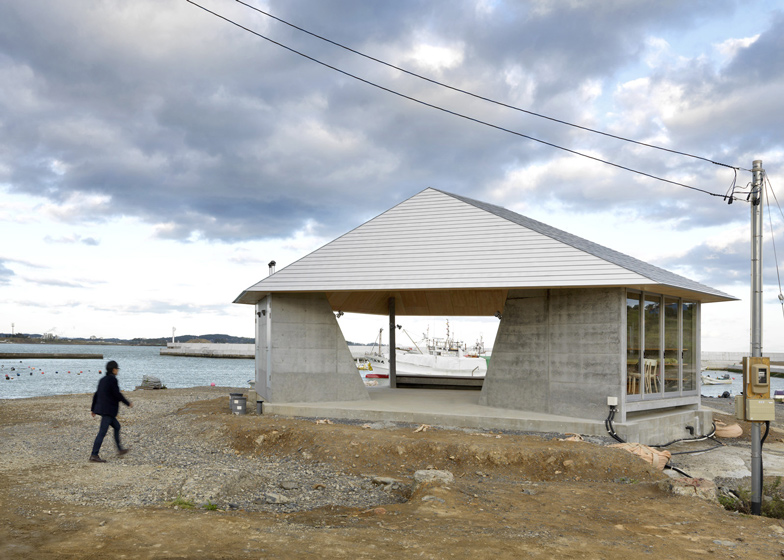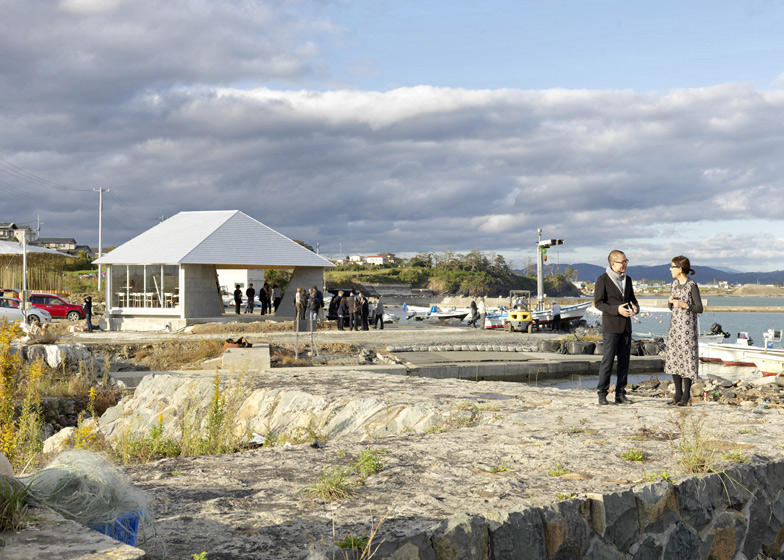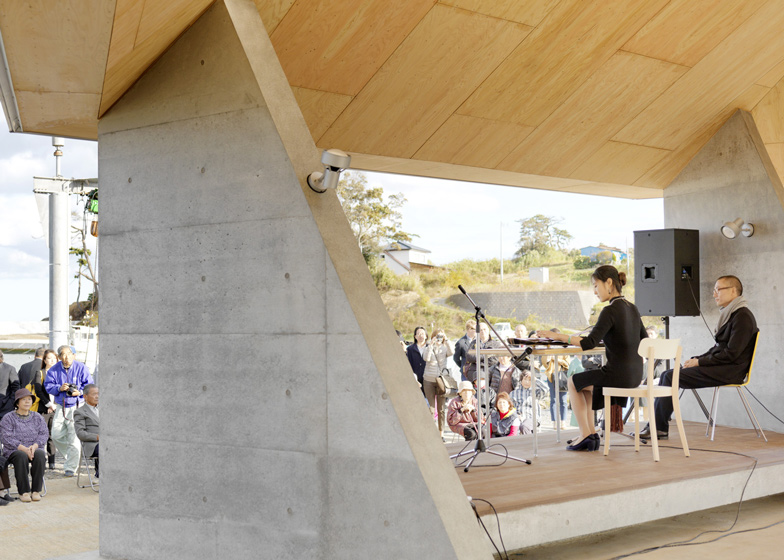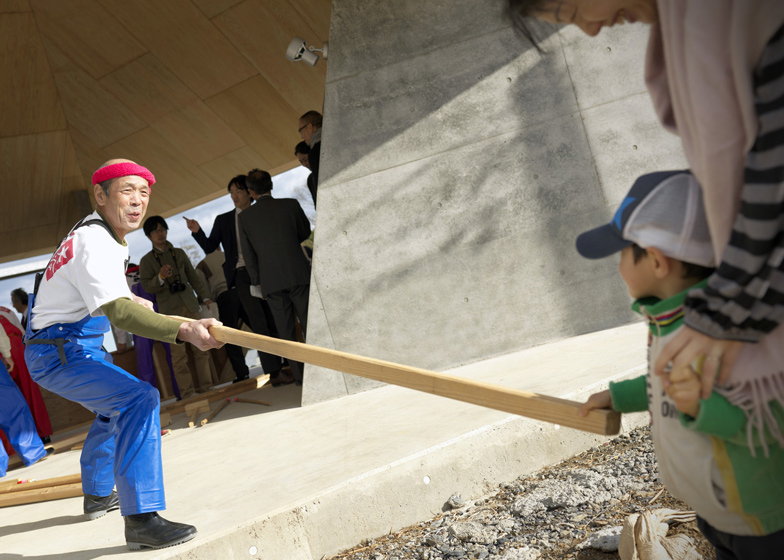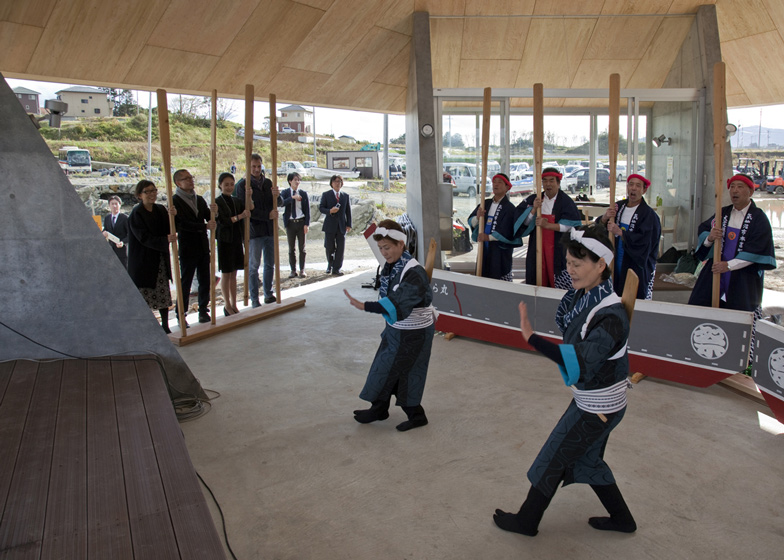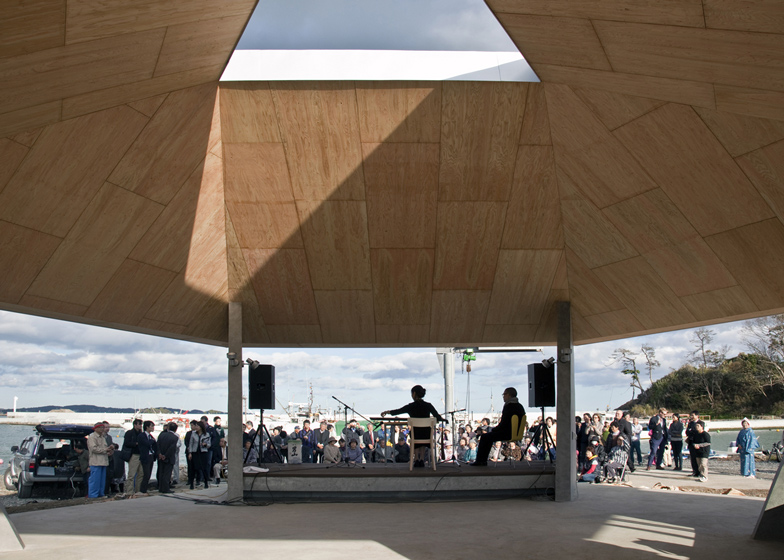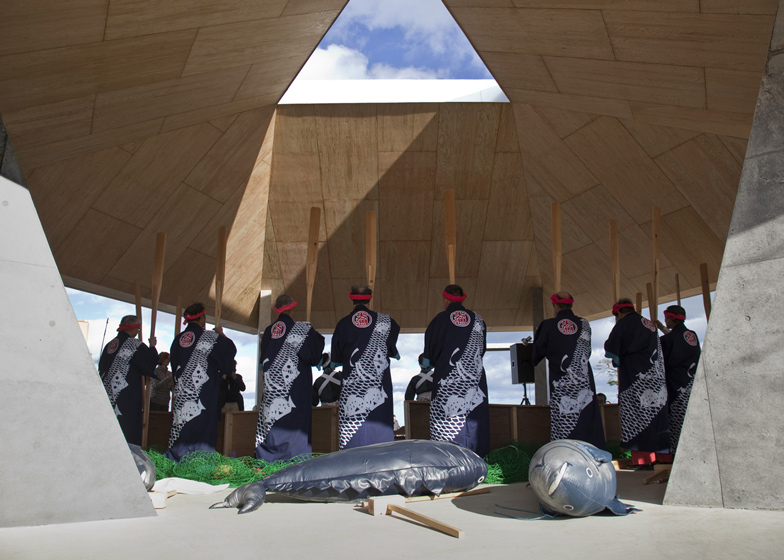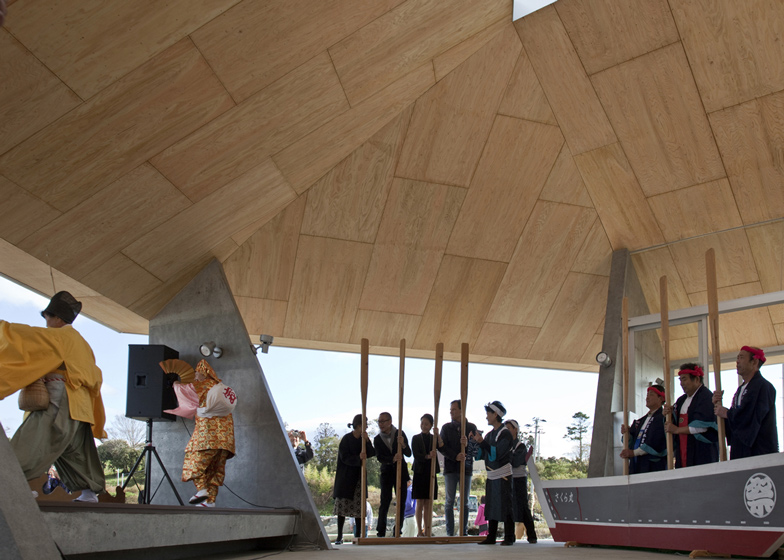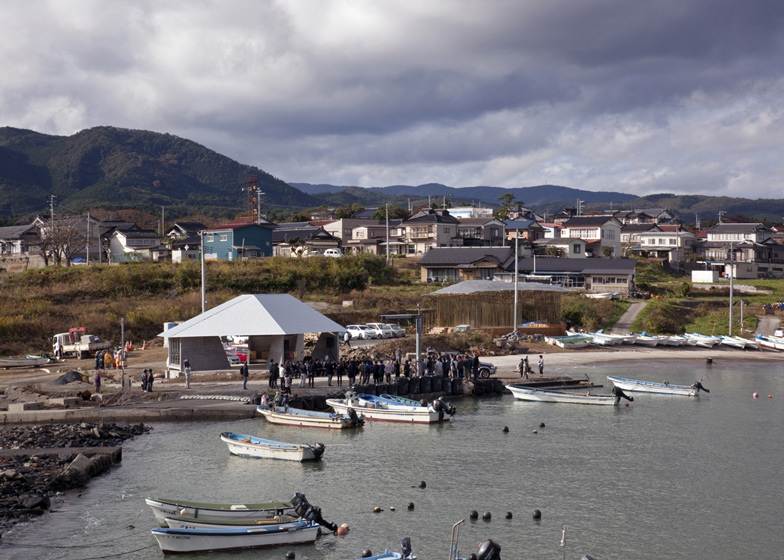The latest project to complete in Toyo Ito's Home For All community rebuilding initiative is this timber and concrete pavilion in a Japanese fishing village, designed by Kazuyo Sejima's protégé Yang Zhao (+ slideshow).
Home For All in Kesennuma is the ninth building in the Home For All project, which was initiated by Japanese architect Toyo Ito just days after the 2011 Tōhoku earthquake and tsunami hit Japan, and involves the construction of new community buildings in the worst-hit areas.
Under the supervision of SANAA principal Kazuyo Sejima, Japanese Chinese architect Yang Zhao designed his building for the coastline of the Kesennuma fishing community in north-west Japan, creating a structure that can be used as a market hall, a meeting place or a performance area.
"It's a shelter in which fishermen can take a rest, a place where the wives would wait for their husbands to return with the catch and sometimes a marketplace," explained Zhao.
The structure was built with a hexagonal plan. Concrete walls support a large pitched roof and also frame a trio of wooden platforms that accommodate different activities.
The first platform accommodates a kitchen and can be enclosed behind sliding glass doors. The second is based on the engawa, a traditional Japanese veranda, while the third includes both toilet facilities and a seating area.
A multi-purpose space at the centre of the pavilion is exposed to the elements and features a timber-lined ceiling punctured by a large triangular skylight.
"At night, the building glows warmly from within, like a lighthouse, waiting for fishermen to come back from the sea," said Zhao.
The floor inside the pavilion is set at the same level as the surrounding pavement so that forklift trucks can drive into the building on market days.
Photography is by Jonathan Leijonhufvud, apart from where otherwise stated.
Here's more information from Yang Zhao:
Home For All in Kesennuma
The home-for-all in Kesennuma is designed and built as a gathering space for a fishing community that severely suffered from the Tsunami in 2011. It is located at Kesennuma's Oya fishing harbour that serves as a centre for the local fishing activities and community life. It's a shelter in which fishermen can take a rest, a place where the wives would wait for their husbands to return with the catch and sometimes a marketplace.
Most part of the space opens to the exterior. A roof, supported by 3 "rooms", covers an area of 117 square metres. At the centre is a triangular-shaped hole in the ceiling that allows people to gaze directly at the sky. The "rooms" with lifted benches are oriented toward the centre and, at the same time, towards views of the surrounding landscape through the three entrances from different sides. The kitchen room is glazed by glass sliding doors and can be slide open in pleasant weathers. The room nearest to the water can be enjoyed as an engawa (a space underneath the eaves, an important space for Japanese architecture and daily life). The toilets are accessed and ventilated from the outside, while oriented towards the centre and the sky through the slanted glazing. The surrounding ground will be paved to the same level as the space inside, allowing forklifts to enter in market hours.
The elemental geometry of the roof creates a dome-like space underneath. Together with the plywood (Japanese cypress) materiality, it generates a warm and protective atmosphere. At the same time, the transparency of the supporting structure creates an open and welcoming character. At night, the building glows warmly from within, like a lighthouse, waiting for fishermen to come back from the sea.
The project was the collaboration between architect Yang Zhao and his mentor Kazuyo Sejima during the 6th cycle of the Rolex Mentor and Protégé Art Initiative. The architects had three workshops with the local community to discuss about the design and get their approval to build. The completion and transfer ceremony took place on Oct. 27, 2013. The photos were taken on the ceremony day.
Architect: Yang Zhao
Advisor: Kazuyo Sejima
Local Architect: Masanori Watase
Design team: Ruofan Chen, Zhou Wu
Structural engineering: Hideaki Hamada
Site supervision: Takezou Murakoshi
Client: People of Ohya district in Kesennuma-city, Miyagi prefecture, Japan
Site area: 419.21m2
Built area or Total floor area: 93.45m2
Cost: 10,0000 euros
Design phase: Dec 2012 - Jun 2013
Construction phase: Jul 2013 - Oct 2013
Roof: galvanised steel sheet
Ceiling: plywood + protective coating
Exterior wall: concrete + protective coating
Interior wall: concrete + protective coating

